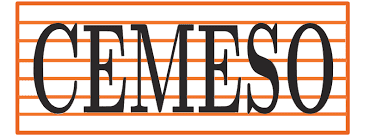In a bid to enhance the skills of journalists in the digital age, the Centre for Media and Society (CEMESO) recently hosted a training session focused on leveraging digital tools for investigative reporting.
The training which was themed ‘Online Exchange on Digital Literacy to Enhance the Accuracy and Reliability of Information’ was supported by IFEX-Right to Information Project.
While delivering his welcome address, Dr. Akingbulu, the Executive Director of CEMESO, emphasized the significance of building journalists’ capacity in the digital era. Dr Akingbulu shared that the training was organized to “provide strategies to counter misinformation and enhance the capacity of journalists to report accurately.”
Dr. Akingbulu further noted that the training aims to sharpen the skills of digital practitioners, content creators, and media professionals. “In a world where our influence extends beyond our immediate work, it’s crucial for journalists to adapt and thrive in a digital-first environment,” he added.
CEMESO’s Program Manager, Timothy Bamidele, discussed the pressing need for freedom of expression and the rights associated with it. He reiterated CEMESO’s commitment to empowering over 80 individuals trained to combat misinformation, which remains a critical challenge in today’s media landscape.
Rotimi Akiola, one of the facilitators at the training, provided insights into distinguishing between misinformation and disinformation. He explained, “Misinformation refers to false or inaccurate information shared without malicious intent, often due to poor interpretation or misunderstanding. In contrast, disinformation is deliberately created and shared false information aimed at deceiving or manipulating people.”
Akiola stressed the importance of digital literacy, particularly when it comes to verifying information. “In today’s world, it’s essential to have the skills to find, evaluate, create, and communicate information effectively,” he noted, emphasizing that these skills are vital for responsible journalism.
He also addressed a common issue journalists face—altered information leading to inaccurate content being published. “There is a need to critically evaluate information and sources to ensure accuracy,” Akiola added, reinforcing the need for robust verification processes.
During his session, Akiola encouraged participants to develop critical thinking skills. “When evaluating sources, ask yourself: Is this information reliable? Is the author credible? What’s the author’s intent? Is the information consistent with other credible sources? Is the information up-to-date?” he advised, providing a checklist for attendees to enhance their investigative efforts.
Another facilitator, Williams Osewezina, highlighted the role of digital tools in navigating crises and conflicts. He noted, “Misinformation often flourishes in such contexts, driven by human limitations like poor attention spans and distraction.” Osewezina cautioned that if left unchecked, false information, motivated by the pursuit of online relevance and revenue, “could lead society into an era dominated by deception, impacting millions.”
The training session attracted a diverse group of media professionals eager to improve their digital capabilities and combat the challenges posed by misinformation.

